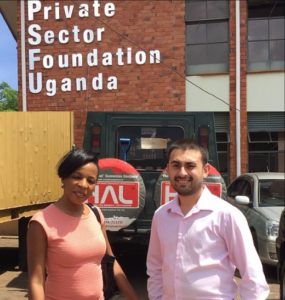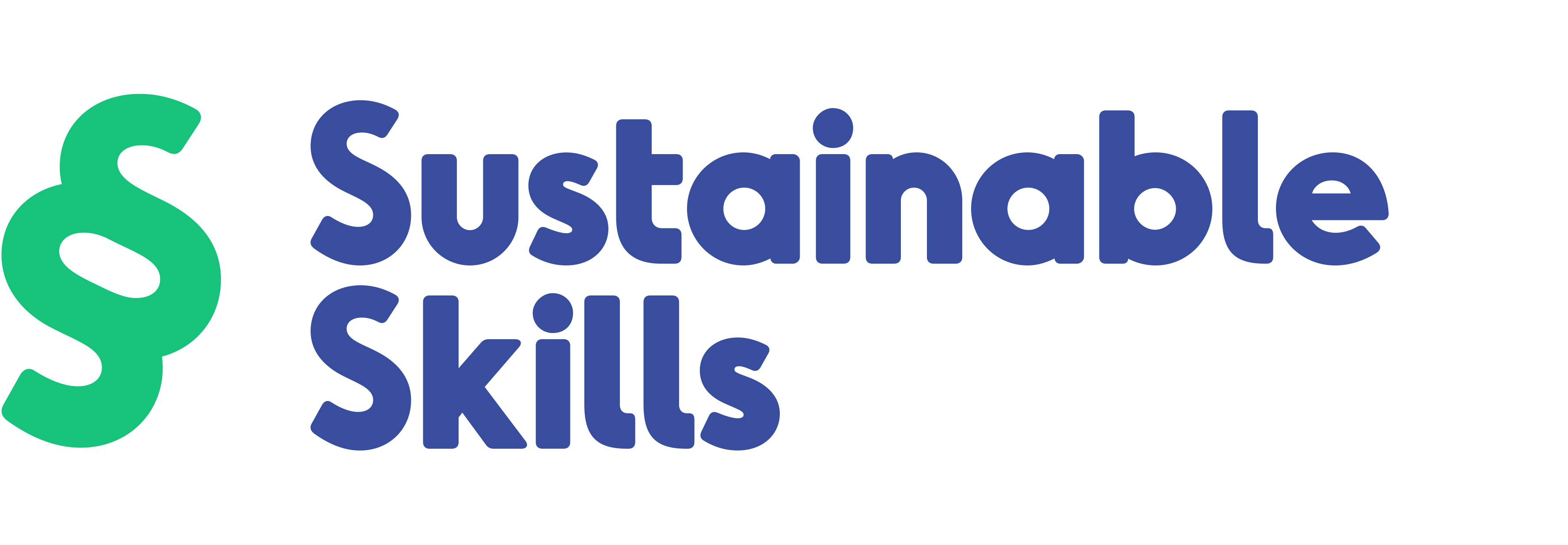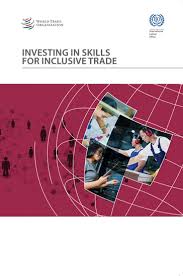
Ben Rawlings, Sustainable Skills Director International Development Services, at Private Sector Foundation Uganda
Sustainable Skills awarded a contract sponsored by the World Bank to address skills shortages in Uganda
A significant milestone was achieved this month as Sustainable Skills has been officially awarded a consultancy contract sponsored by the World Bank to address skills imbalances and shortages in Uganda. Client of the contract is the Private Sector Foundation Uganda (PSFU) and this is the first non Australian government contract in the history of Sustainable Skills/SkillsDMC.
What’s the project about
The Government of Uganda received credit from the World Bank towards implementation of the Uganda Competitive Fund for employer-led short-term training which is part of the Uganda Skills Development Project (USDP) aimed to address prevailing skills imbalances and shortages in Uganda. An important element of the initiative is to facilitate collaboration between training providers and industry to promote demand driven skills development with special attention to innovative modes of training.
The grant component of USDP aims at:
- supporting training activities that lead to improved productivity and competitiveness in the formal and informal sectors, hereby creating new income opportunities,
- providing funding primarily for the improvement of the quality and relevance of existing skills systems,
- prioritising innovative new approaches to skills development with special attention to micro and small enterprises.
Why Sustainable Skills is the right fit for this project
The technical proposal submitted by Sustainable Skills obtained an excellent evaluation from the committee, largely due to our ability to mobilise the highly skilled, highly experienced and well-suited local and international consultants to the task.
Our experience managing the National Workforce Development Fund for the Resources and Infrastructures Industries in Australia is positively recognised around the world, as well as our proven capacity to develop TVET strategies tailored to the local needs of each country. This unique background positions Sustainable Skills as a highly qualified partner to manage funds in the TVET sector worldwide, and determined PSFU decision to appoint Sustainable Skills as the TVET consultancy for this project.
What’s Sustainable Skill’s Role
Sustainable Skills team consists of highly experienced local and international TVET consultants, coordinated by Ben Rawlings, our Director International Development Services. The project involves two main steps:
- Due diligence: a fiduciary activity carried out to verify, validate, and assess the quality, integrity, and completeness of the key information required to make a well-informed grant funding decision and avoid waste, fraud, and abuse. Purpose of the due diligence is to ensure that all material facts relevant to the funding decision have been revealed, and that all the organisations involved in the project are honest, reliable, and fully capable of executing their responsibilities under the grant agreements.
- Capacity assessment: purpose of the capacity assessment is to ensure that the organisations supposed to deliver the skills training possess the required facilities, expertise and experience, such as competences of teaching staff, availability of learning material, management capacity, and the likeliness of being able to continue the activity beyond the time of the project.
We are looking forward to working with PSFU to implement this exciting Skills Development Project and we hope you’ll follow us over the coming months to get the latest updates on the project.

 ILO and WTO have recently co-published the book: “Investing in Skills for Inclusive Trade” focused on the linkages between trade and skills and between trade and skills development policies. The publication has been presented on 4 July during a conference at the WTO headquarter in Geneva by Roberto Azevêdo and Guy Ryder, respectively WTO and ILO Director-General.
ILO and WTO have recently co-published the book: “Investing in Skills for Inclusive Trade” focused on the linkages between trade and skills and between trade and skills development policies. The publication has been presented on 4 July during a conference at the WTO headquarter in Geneva by Roberto Azevêdo and Guy Ryder, respectively WTO and ILO Director-General.